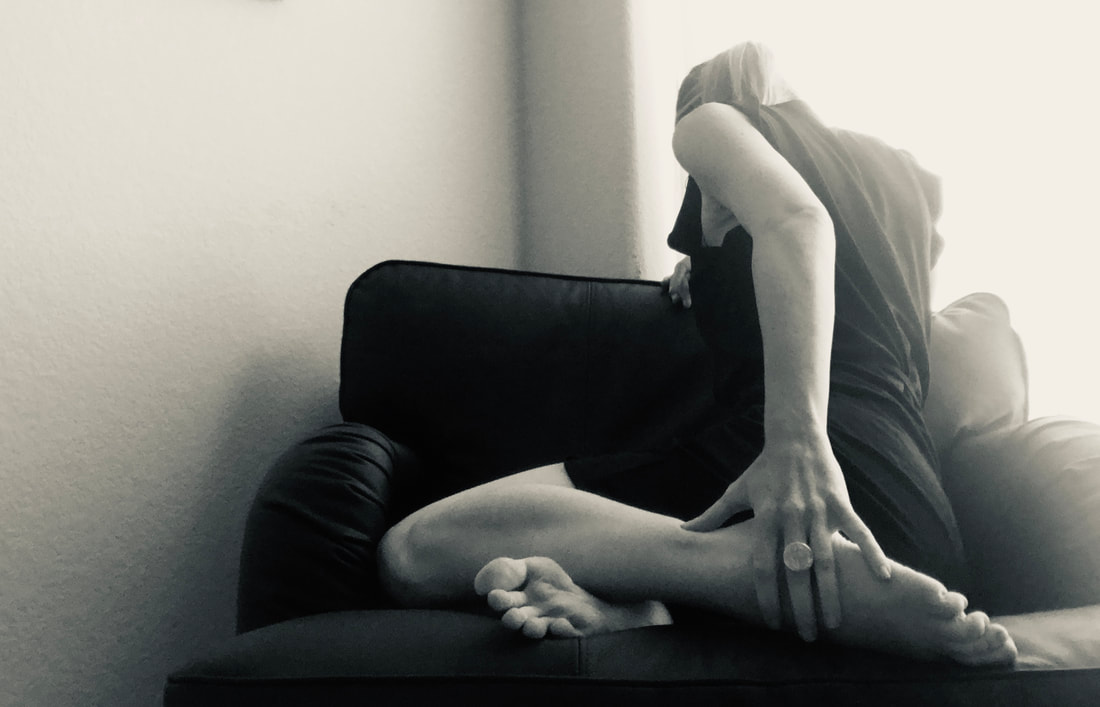 There is an unhelpful idea I’ve heard: once you start teaching yoga, you’re a yoga teacher forever. I believe this is both true and false. It’s true in the sense that if you have ever been perceived as a yoga teacher, you will always be a teacher to that student. Don’t believe me? Imagine you’re at a burlesque show, and the cast includes someone who used to be your postal worker, someone who used to serve coffee at the corner coffee shop, and the person who was your kid’s kindergarten teacher four years ago. The teacher feels weirder, right? If you taught yoga for one class, and someone was moved, you are always a teacher to them. Once a teacher, always a teacher. But it doesn’t mean you have to teach, or you will always teach, or that you must make money teaching. You can take a break. In fact, I think you’ll need to. It may be true in other fields as well, but it starts with exuberance - you extoll the benefits of stretching, ujjayi, lycra, and proper blanket folding. It’s adorable, how you become passionate about Nidra or creative block usages, or tell people what Guru really means, and how their guru could be a cat or a cold sore. Then… at a point… complacency. You catch yourself thinking you “have to go to work” on the way to teach a class, the way you used to feel at your old job when you were surrounded by TPS reports or 31 flavors. You throw shade at the teacher with the same tired playlist, who taught the same jazz last week, and you play hooky from yoga. And then? Resentment. Resignation. Dark times. You hear yourself say that yoga isn’t what it used to be, or that a certain lineage is a cult, or another is a veritable vending machine for teachers, or worse. “Oh gosh!” you think, “I’m starting to lose it.” And then? You become destructive. Practicing more and more until you believe it again, fast, run, or feast because you feel so tremendously out of sorts with the practice. Didn’t you used to like this? Wouldn’t working at McDonald’s make more sense? Then at least you’d have a reliable paycheck and possibility for advancement. This is normal. Typical. It happens, and rather than trying to avoid it, I’ll encourage you to try to embrace it. (and take appropriate action) Teaching has seasons, like life, and it is incumbent upon you to notice when the leaves start to change and you head into the darkness of a yoga winter. Also, it would be helpful if we could agree to be honest about this experience, rather than trying to hide or stuff our yoga winter and march right on through it. Have you tried to plant seeds in the snow? (I have). I have gotten so tired, frustrated, disenchanted, resentful, and perturbed that I’ve done and said some unseemly things. Thankfully, in my case, nothing criminal, but I have accidentally vomited unsolicited advice, said nasty things about other teachers and studios, and (possibly) shamed people both for being vegan and for not being vegan, essentially at the same time. In these moments, I have had other teachers confide in me, as though we’re in an unseemly back alley: “I’m burnt out.” Exhausted. Overwhelmed. Spiritually bereft. For some, it is because they have the notion that they must be of service to everyone, always. For others, it’s because they believe they must DO as many practices as they TEACH, so teaching 16 classes a week is a death-march. And for many more, it is because they think that working in this way should be a joy and there is something fundamentally wrong with them for needing a break. May I suggest another option? If and when you notice complacency, pause, and tell someone. If you’re in resentment, stop, and tell someone. If you notice a feeling of resignation, vindictiveness, or sabotage, tell someone. Maybe what you need is a yoga winter? Winter is a gorgeous time of darkness, silence, and rest. It is not a bad thing, it is a necessary thing, because creating and growing require energy. You are not a machine, and while you do have an infinite capacity to teach, to create, to support, this capacity requires rest. I’d like to drop the shame, and let this be part of our wellness practice, when we talk with one another about how teaching is going for us. I’d like to invite studio owners and managers to incorporate this line of questioning into annual reviews, mentoring sessions, and check-ins. How are you doing? How is your teaching? When was your last winter? Let’s talk about it. Getting out of a yoga winter is a one-step process: Wait. (rest). You with me?
0 Comments
|
PROGRAMS for Yoga Teachers:YIN Archives
September 2019
Categories
All
|
 RSS Feed
RSS Feed
